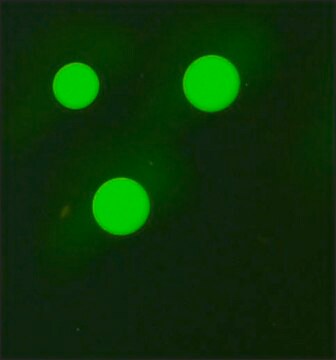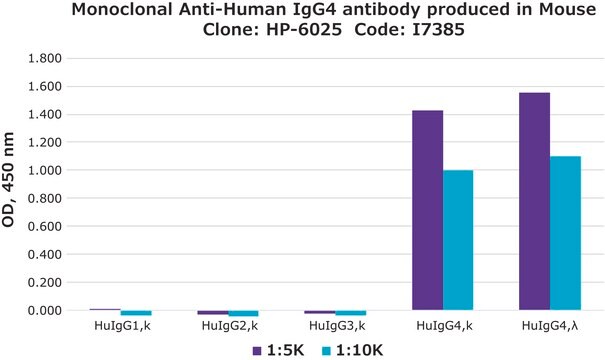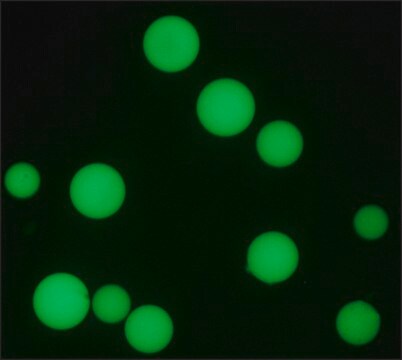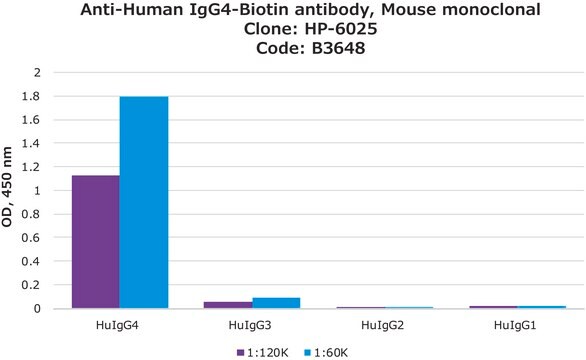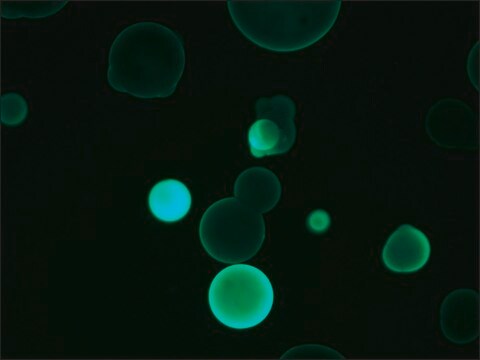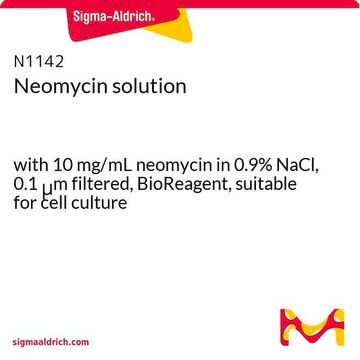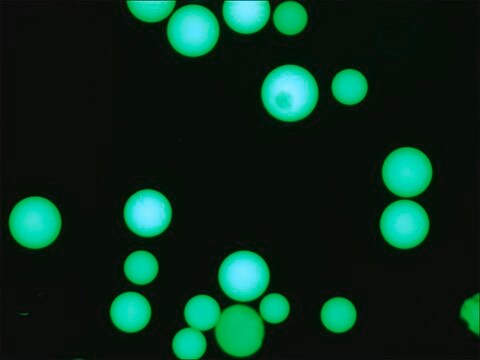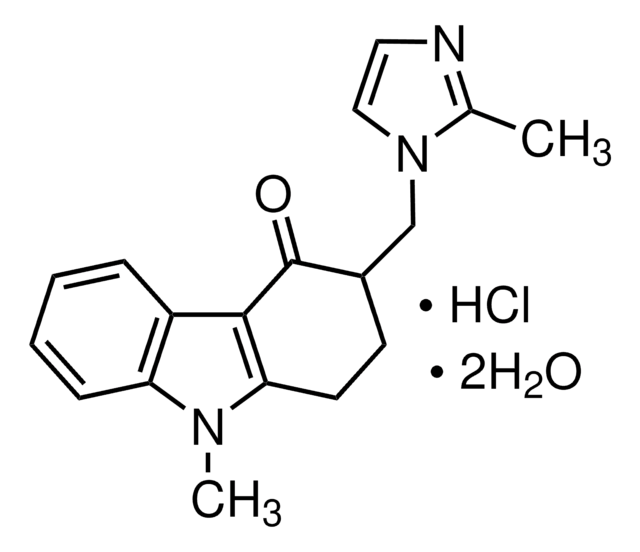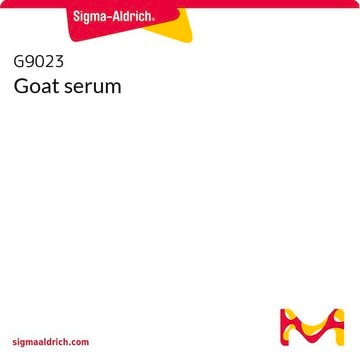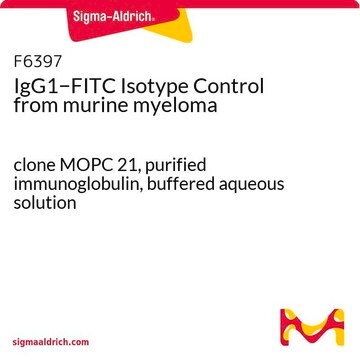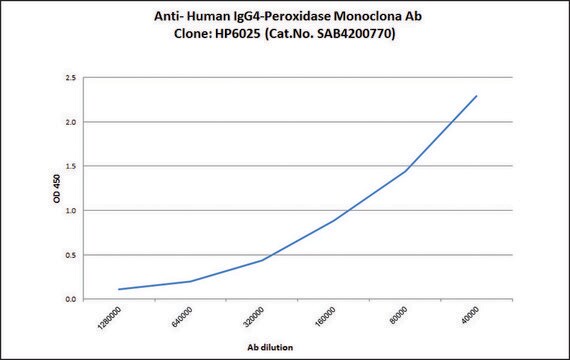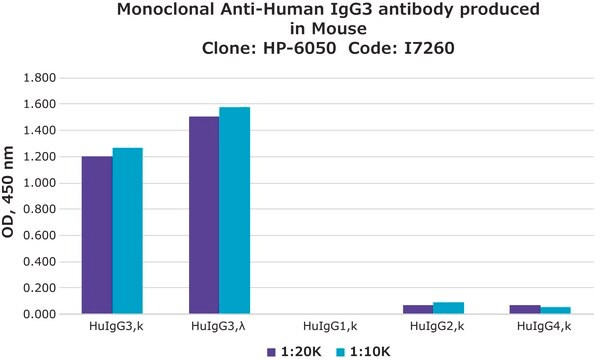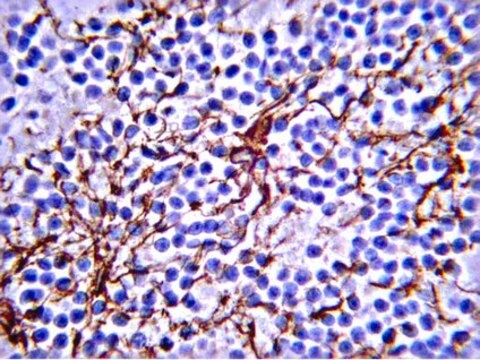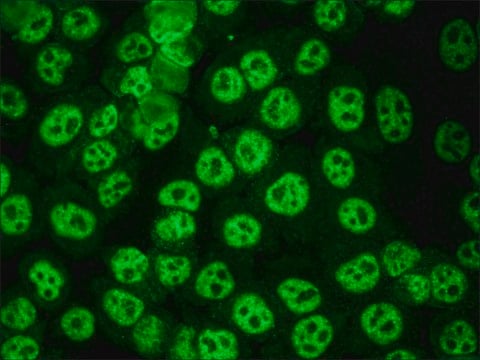F9890
Anti-Human IgG4−FITC antibody, Mouse monoclonal
clone HP-6025, purified from hybridoma cell culture
Synonym(s):
Monoclonal Anti-Human IgG4
About This Item
Recommended Products
biological source
mouse
conjugate
FITC conjugate
antibody form
purified from hybridoma cell culture
antibody product type
secondary antibodies
clone
HP-6025, monoclonal
form
buffered aqueous solution
storage condition
protect from light
technique(s)
dot immunobinding: 1:64 using using a 4-8 μg dot of human IgG4
isotype
IgG1
shipped in
dry ice
storage temp.
−20°C
target post-translational modification
unmodified
Looking for similar products? Visit Product Comparison Guide
Related Categories
General description
Specificity
Application
Biochem/physiol Actions
Physical form
Disclaimer
Not finding the right product?
Try our Product Selector Tool.
Storage Class Code
10 - Combustible liquids
WGK
nwg
Flash Point(F)
Not applicable
Flash Point(C)
Not applicable
Personal Protective Equipment
Certificates of Analysis (COA)
Search for Certificates of Analysis (COA) by entering the products Lot/Batch Number. Lot and Batch Numbers can be found on a product’s label following the words ‘Lot’ or ‘Batch’.
Already Own This Product?
Find documentation for the products that you have recently purchased in the Document Library.
Customers Also Viewed
Articles
Review the key factors that should figure in your decision to choose a secondary antibody. Learn about species, subclass, isotype, label, and more.
Our team of scientists has experience in all areas of research including Life Science, Material Science, Chemical Synthesis, Chromatography, Analytical and many others.
Contact Technical Service